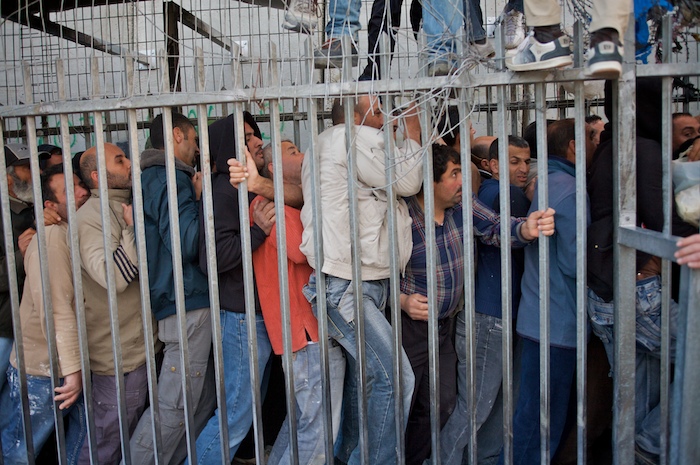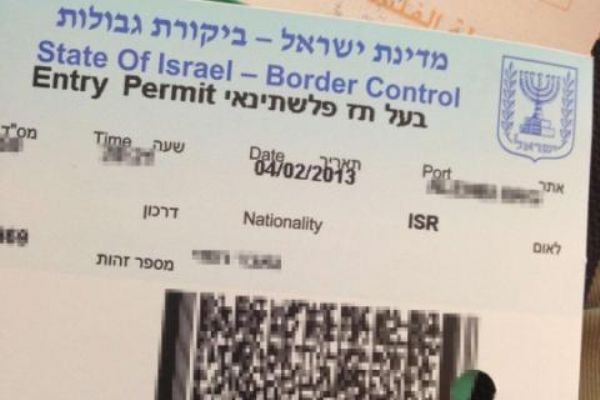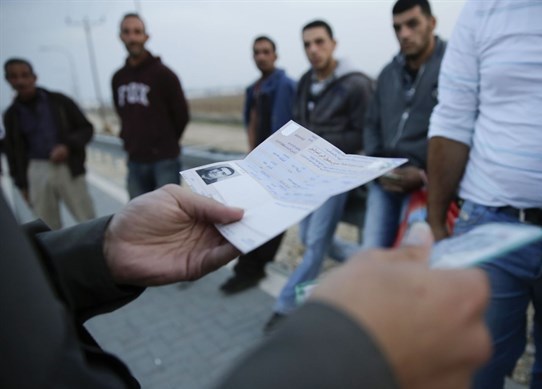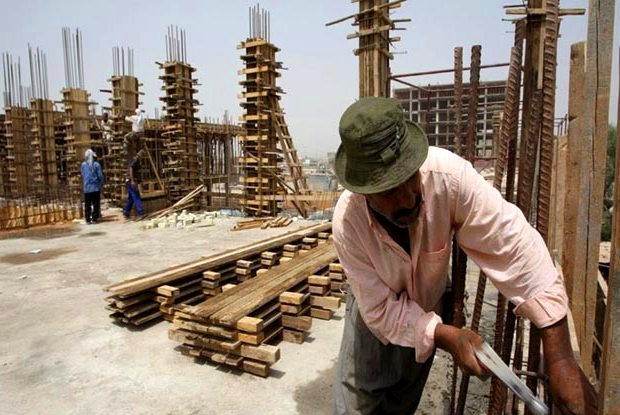Permits Brokerage: A Black Market where the Victims are Ordinary Workers
The Palestinian case is a very exceptional one, which forces the occupied to work for their occupiers.However, eventhese job opportunities are not provided on a silver platter. Instead, a Palestinian wishing to work there pays a great amount of money to obtain a working permit, and to obtain these permits; workers might be subjected to extortion, such as political extortion, where the beneficiaries are always permit traders.

Ramallah- Palestine Economy Portal | Hasnaa al Rantisy-The difficult life of Palestinians pushes thousands of them to apply for permits to work in Israel and the settlements. The lucky ones are those who obtain a permit, while others have to turn to “brokers” to get these permits for them. Some even risk their lives by going to work in Israel through smuggling.
The economic situation in Palestine has reached a very dangerous stage, as a report from the Central Bureau of Statistics shows that there are 338 thousand unemployed person in Palestine. Other economic institutions made warningsregarding this percentage, clarifying that Palestine is no longer able to solve the unemployment problem under the current political and economic conditions caused by the Israeli occupation.
Currently, there are 78 thousand Palestinian workers in Israel, 21 thousand of them work in the settlements.

Under the Table
Sameh, 36 year-old worker from Ramallah, talks about his experience in buying permits from brokers, he says: “I buy my permit for 3500 NIS.it is very difficult to buy one and I also have to endure favors from more than one contractor. Sometimes I buy the permit but do not work for the whole month. If the contactor and I do not agree on something, he can stop my permit, and he can also stop my permit if I wish to work for another contractor. In such a case I have two options: either I have to accept the bad working conditions, or I stay at home waiting for a miraculous help from God.”
Commenting on that, Undersecretary of the Ministry of Civil Affairs MaaroufZahran described permit trading as “A black market.” He said that it is not organized, and does not follow a clear and specific strategy. According to Zahran, the permits that are sold through permit brokers do not get issued officially, but rather “under the table.”
He pointed that there are two kinds of permits: the first ones are the permits that the contractors get, as each contractor has a quota, which means that they can get a certain number of permits though they do not need workers as much. Therefore, they sell the permits for amounts that reach 2000 NIS, though to get them they pay only 1400 NIS for the Bureau of labor at Israel.
He added: the other kind is the permits obtained for people working for Israel, which are considered to be “suspicious permits.”

An Extortion Method
Abdul Karim Mardawi, official of the health insurance file at the Ministry of Labor, says that “permit brokers” are spread all over Palestine.
According to Mardawi, some of them use permits as an extortion method to blackmail workers to work with the occupation, and some of them use permits to make financial profit;for when a contractor sells 20 permits for 2000 NIS each, this makes a very good profit.
Mardawi recommends workers to obtain their permits legally, which is the safest way. According to Israeli terms, workers can obtain a permit if they were 22 years old or above, have the “magnetic” card; which is a security check card, have a bank account, and an employer who is registered in the Israeli Ministry of Labor.
The importance of following the legal way is in maintaining the workers’ rights, as well as the rights of their families. In case the worker gets injured or has an accident, his family can receive a financial compensation to assist them, says Mardawi.

Permits that Maintain your Rights
According to Mardawi, the legal working permits are issued by labor offices within the green line. The permits are then sent to the Palestinian Civil Administration coordinating offices. For the northern areas, permits are delivered to Irtah (Sha'arEfrayim) checkpoint near the city ofTulkarm;for the middle areas, permits are delivered somewhere close; and the same is done for Hebron and Bethlehem. These legal permits are guaranteed and their holders receive their full rights.
Another kind of permits are the ones that have a green color, these are permits for working in settlements. Mardawi says that the Palestinian Government prohibits working in settlements, and considers workers there as being illegal workers who have no rights.
Then there are merchant permits, which are issued by the Chamber of Commerce. These permits do not preserve the rights of the workers, because they are not working permits, though they are usually used for working in Israel. In addition to that, other permits are given for people who own land behind the separation wall. Though these permits are used for working in Israel, they also do not guarantee rights for the workers who are often subject to exploitation.
Finally, there are the “searching for job” permits, whichPalestinian workers can get by making an agreement with a contractor who needs workers.The workers submitapplications to obtain a searching for job permit, and once they find a job they submit an application for an ordinary working permit.
Mardawi explained that some workers enter Israel through smuggling entrances near the separation wall, especially in Jerusalem, which exposes them to a lot of dangers.
It is noteworthy here that the workers in construction sector get the lion’s share of Israeli permits, as they get 70% of the total number of permits, whileothers work in agricultural sector. Palestinians are not allowed to work in other sectors, which are dedicated for the Israeli workers.
Facts and Figures
- There are more than 100 thousand Palestinian workers working in Israel.
- The total amount of money the Palestinian workers in Israel receive is about 220 million NIS per month.
- In the construction sector, employees are paid wages between 200-700 NIS per day.


